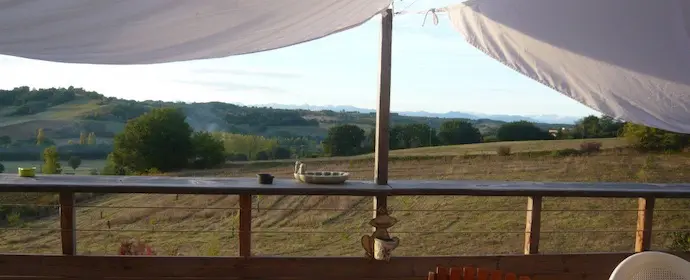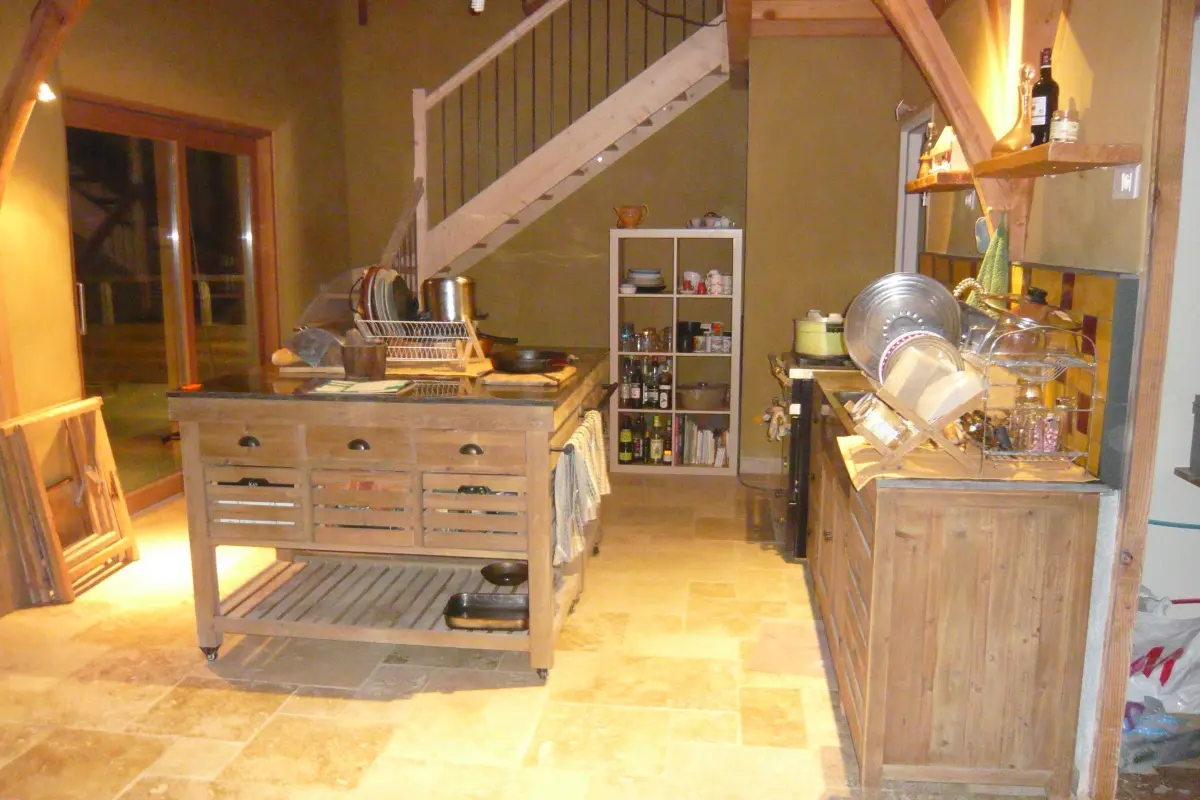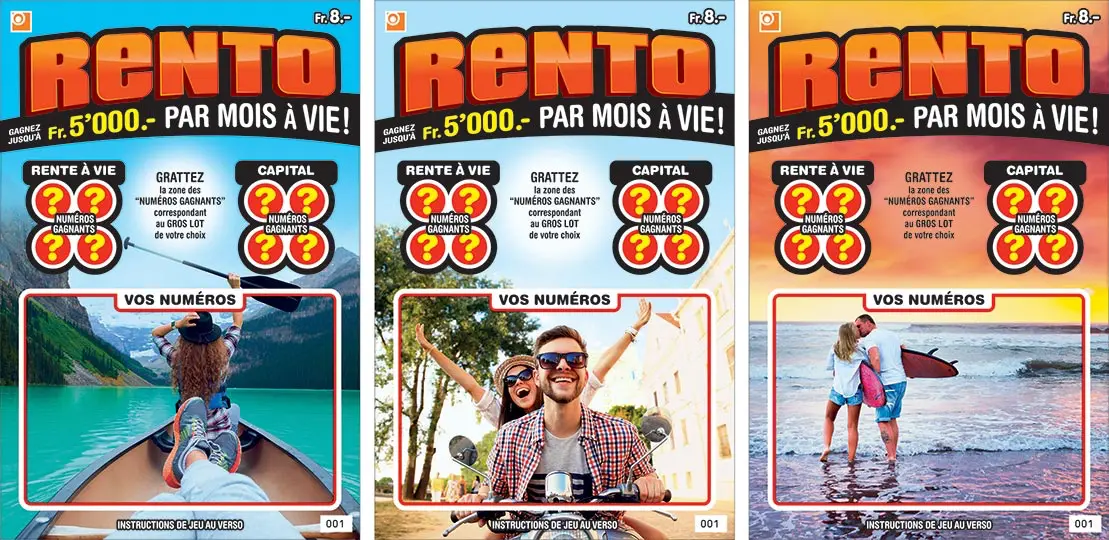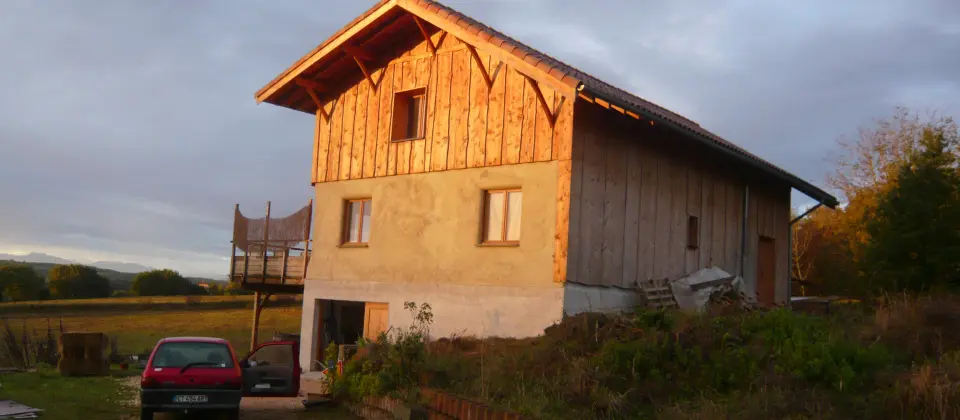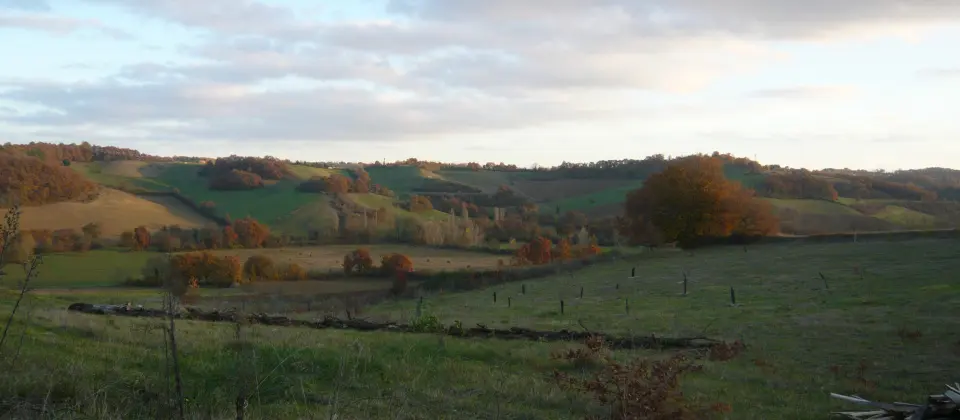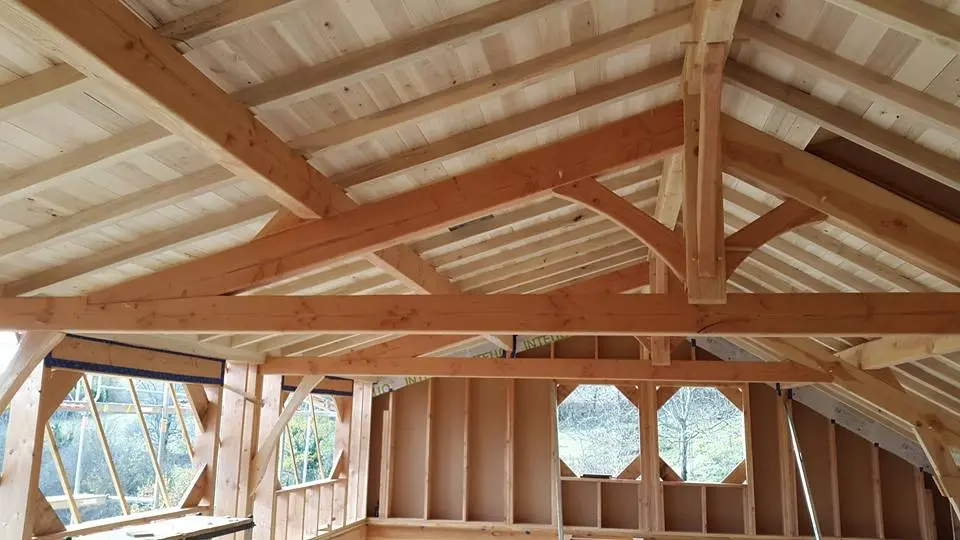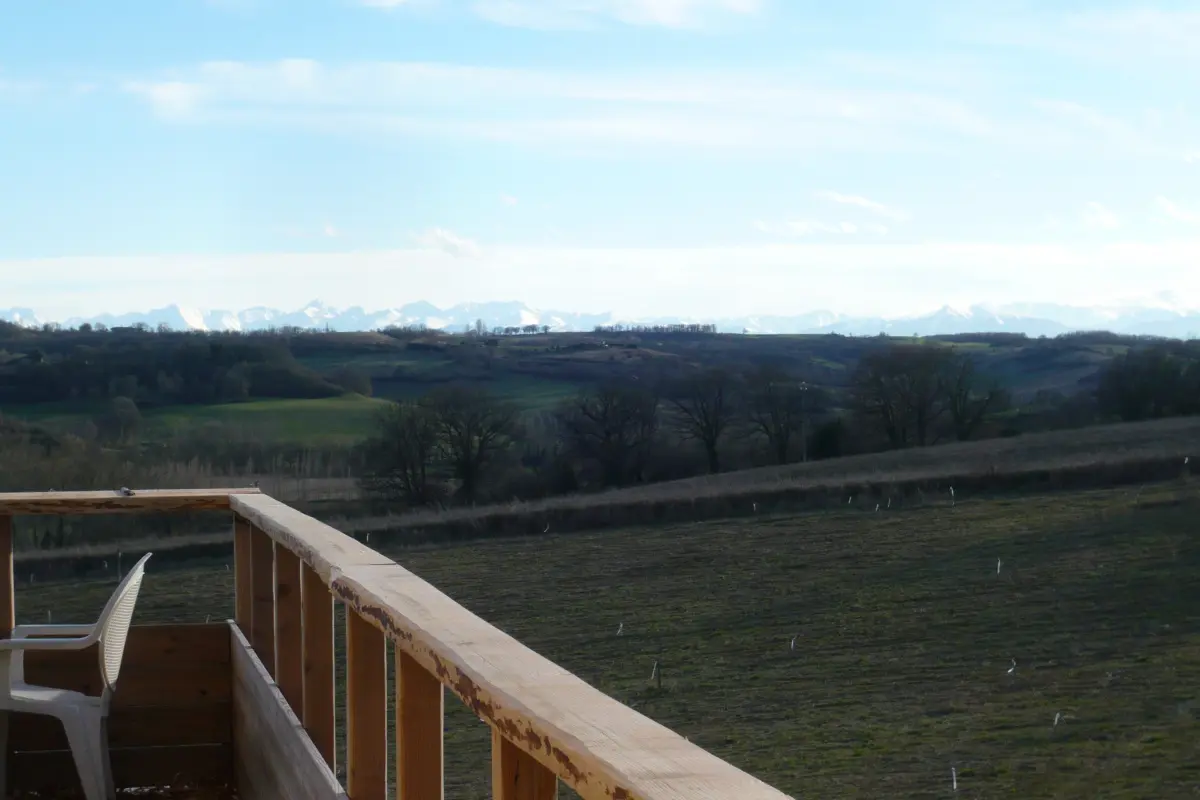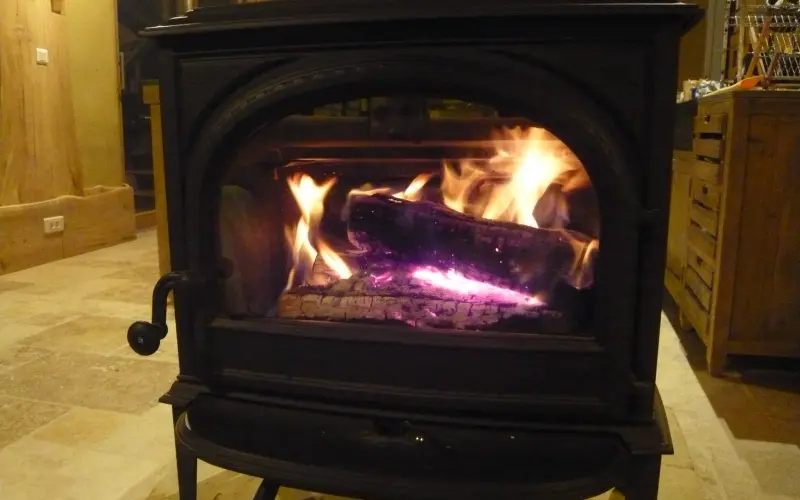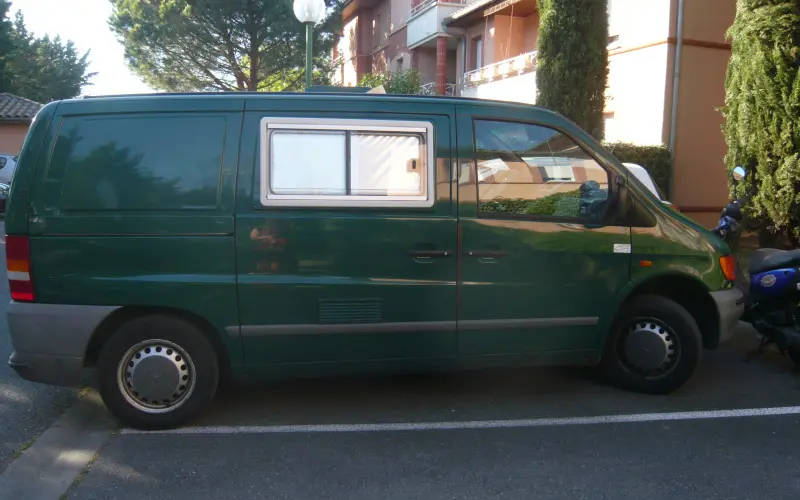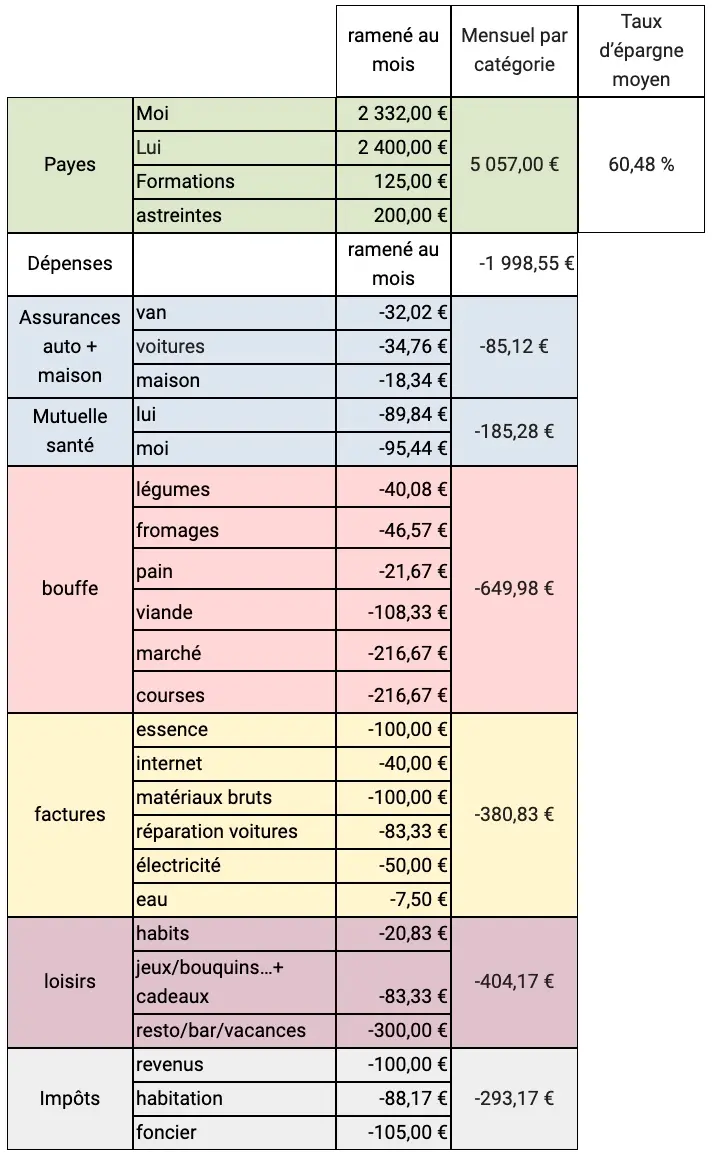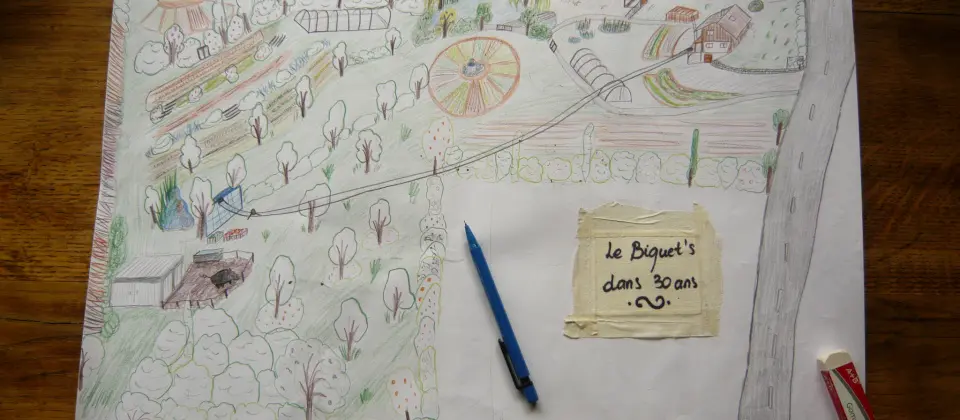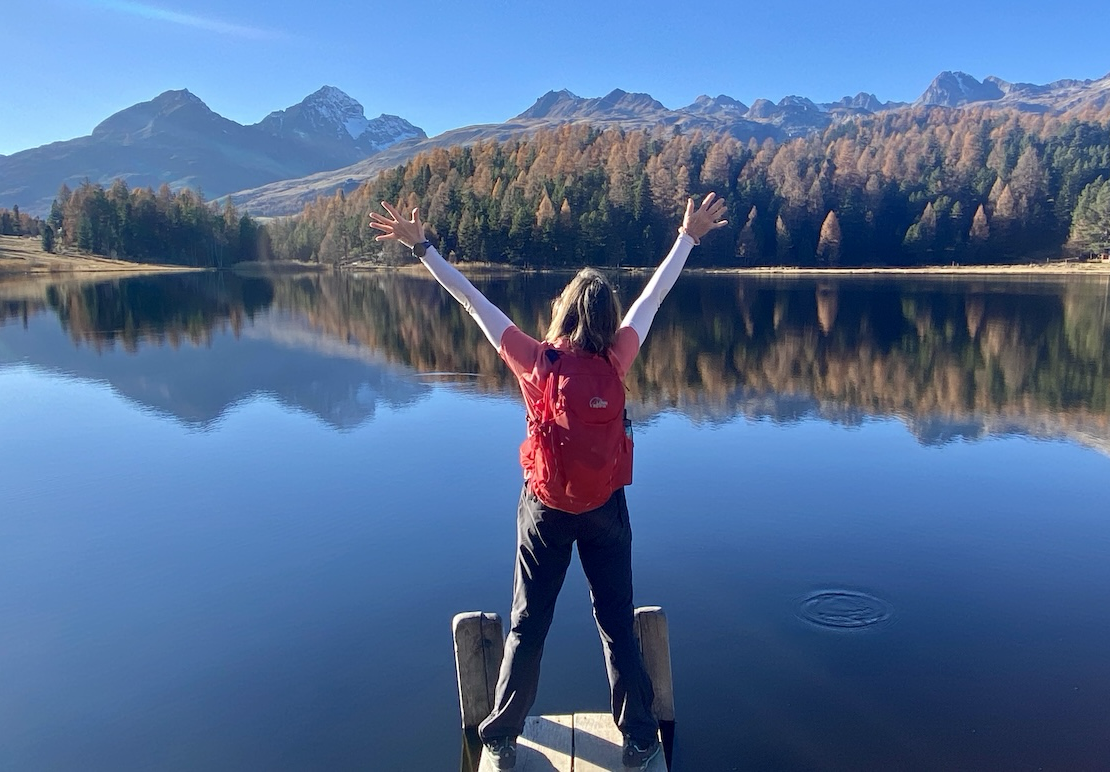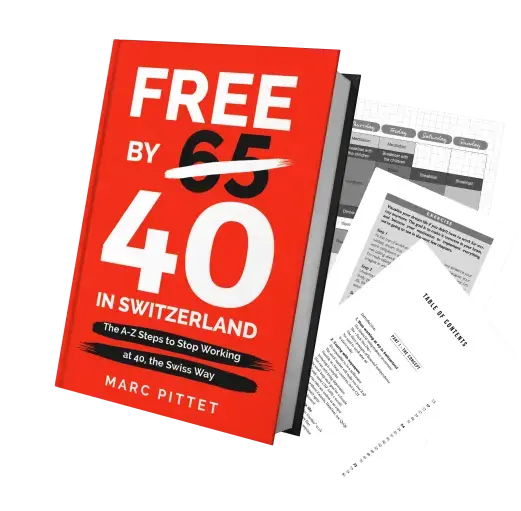One of the thing I prefer with my blog is the diversity of people I meet. It’s so rewarding from a knowledge and personal development point of view.
Today, I’m sharing with you the story of “The Biquette and her biquet” as they introduce themselves on the web.
The background remains my beloved frugality, but the form is different. That’s why I thought it would be interesting to share their story with you, because it gives you another perspective on the subject.
And, a rare thing on the blog, we’re going to cross the border today to escape to the French Pyrenees.
Enjoy the read!
The Biquette, her Biquet and their wealth
Randomness led me to your blog (well no, it’s more the YouTube algorithm than randomness that suggested a video in which it was about frugalism and your blog…).
I fell into it and, piqued by curiosity, I started to read the articles one after the other, not all of them, there are so many!
I alternated between enthusiasm, disappointment, ideas to take, common points and differences. This recent discovery (end of May 2020) led me to look back and see how far I myself had come. I had never really looked back before… And for that, thank you very much, I am rarely satisfied and this time, I took a self-satisfaction shot!
I’m not Swiss, I’m frugal in my own way, and I’m not looking to become rich with euros, but rather with knowledge, sharing and happiness.
I recognized myself in part of your introduction, and I wanted to share my story which starts in the same way (I had a childhood, from what I perceive, close to that of Mr. MP). The rest of the story takes a parallel path, which perhaps leads in the same direction, or at least the one I hope to reach: individual and family happiness, but also collective, as well as the desire to share what makes us happy to help others become happy too.
The Biquet and the Biquette
My dear husband, whom I define as the social element of our couple: he is the one who has the ideas for outings, who invites people spontaneously on a weekday evening, who develops our network by reaching out to others (of all ages, social classes, origins…), who is interested in subjects that I would never have thought of thinking about one day, and seeks out different points of view to form his own opinion, leaving himself the right to change his mind. He is rather “impulsive” and “relational”. He’s the geek of the house (always on his PC developing new tools in the open source world), but he’s not the king of practical organization even if he’s improving.
As for me, I am an emotional and pragmatic person. I am grateful to have met my Biquet of a husband who brings this social side to my life (which has allowed me to meet a lot of people I would never have spoken to otherwise, as I am rather shy), even if I appreciate having one or two weekends where we stay quiet in order to recharge our batteries. In our couple, I assume a good part of the “mental load”, I manage (well, since I read “How to onboard your partner on a common budget”, the term “manage” doesn’t seem to me the most adapted ;) — now I would say rather “I take a look at”) the planning, the budget, I remind the priorities… “Organizer” as he calls me. Less impulsive and less confrontational, I’m the one who gets involved in our village. I also love to have small attentions to please others.
We both love to cook and we do it quite well! Because what’s better than a good meal to share quality time with family and friends.
As far as jobs are concerned, we are both lucky to have a stable job for the moment, rather pleasant, motivating and of public utility, with flexible schedules, we work remotely part of the week (well, now, we telework at 100% “thanks” to COVID). Afterwards, everything is not rosy either, and we hope to reduce our “salaried” time as much as possible, or even to stop, without certainty, and by considering new activities. It doesn’t matter if they are voluntary, entrepreneurial, or remunerative, but in any case we hope that they will create values (at least moral ones) and joy around them.
We don’t have children (yet), but we are seriously preparing for it: a little boy is on the way for July 2021! And so, it changes a bit the situation, I plan to take a parental leave (3 years in principle, but I’ll see how it goes) to take care of the little one, and to look for new activities closer (geographically, but also to my values).
We both grew up in the countryside (in France near the Swiss border!) For us too, raising children requires being in the middle of nature, as well as having closer and deeper contacts with people (vs. the often individualistic and superficial side of the cities, and even more so the French cities near the Swiss border). It is in front of the Pyrenees that we found the nature, the land and the mentality that we like.
A bit of history
Growing up, I was fortunate to be well educated about money by my mother.
She showed me early on the importance of saving.
I also remember this little green notebook that I received when I opened my first bank account (I still have it in a box, I think). Like Mr. MP, I never had any pocket money either, I used to go to yard sales to sell the toys and clothes I didn’t use anymore, I used to sell lilies of the valley with my brother on May 1st at the roadside in front of our house. And as soon as I could, I did small summer jobs.
I have always been very careful with money, my mother used to gently laugh at my attitude the few times we bought a scratch card. It was a customary treat in my family, but very occasional. My mother, during a shopping day (often in Switzerland), would offer my brother and me a scratch ticket. When my ticket was a winner (which was often the case, because I am, well I was, because I don’t play anymore, rather lucky), I would just play the amount of the ticket I bought at the beginning. It was a principle that I had set for myself without really knowing why, while my brother encouraged me to play again because he rarely won…
I also have a vague memory of having used an accounting software to handle my accounts when I was a teenager, I kept the credit card receipts and entered them once a month in the software but it didn’t last long…
I abandoned my account book and the retrieval of bank card receipts rather quickly when I left my parents’ house for the much lighter follow-up (my memory only…) of my only bank account on which my salary fell. Being a very little spender, my savings slowly but surely grew, without paying attention.
I then learned (too late for my taste!) the definition of the word “debt” by understanding the mechanism of monetary creation, and from now on, I conceive debt as intrinsically bad, even for buying a house!
As I read the articles in the series “How to onboard your partner on a common budget”, I realized that I had never asked myself about money management in our relationship, nor about other possible ways to do it. I know that many people manage their finances separately with or without a joint account, but I had never thought about how they do it on a daily basis!
And as I read the story of Mr. and Mrs. MP, I realized how lucky I was, that with the Biquet, we functioned like that: in our couple we NEVER did any calculations between us!
We started to live together after a few months, but in a flat with two other friends. At that time, we set up a very simple system: a box where we all put the same amount in cash at the beginning of the month, and a sheet of paper next to it where we wrote what we spent. As the months went by, we adjusted the amount we put in at the beginning of the month, because we had overestimated at the beginning (living together is cheaper than living alone). And when we stopped the roommate, we divided in 4 what was left in the box! We then made several other roommates together and separately, which functioned more or less like that.
Then when we moved in together, we alternated (approximately) the payment of the bills but without doing the calculations or even talking about it. So we have no idea who paid more than the other and we will never know… Since, we have always each one our account, and we continue to pay the invoices alternatively (in a completely approximate way) and to have a checkpoint every two months approximately to know how much saving we have.
It was when I was looking for a place to start a family (9 years ago now) that I started to assess our overall savings and regular expenses with the goal of staying out of debt.
For that, I made a balance sheet of our savings since I met the Biquet (sum of all our pay slips compared to the balance of our two accounts by removing the respective initial contributions).
This was THE big surprise!
Without restricting ourselves and without even realizing it, we systematically put aside 50% of our income each month. I redid the calculations several times because it seemed impossible. I then started estimating our future expenses to estimate the budget that we could expect to build the house. And indeed, I fell again on 50% of our wages.
Our life choice
The estimated budget over 5 years was about 200'000 euros. Finally, little by little, I realized that we were saving more than expected, because I had overestimated our expenses as, at that time, we were very interested in and initiated to minimalism (which I prefer to call “happy and voluntary sobriety”, or “do it yourself”).
It took us a long time to find our place to live (3 years of research and paperwork) but it allowed us to increase our savings and to mature our project: to build our own house on a 3 hectares land.
With the motto:
- The cleanest energy is the one we do not consume
- The most important saving is the money that we don’t spend on things we can do ourselves
It was a risky project, and we were well aware of it… not being in the business, never having held tools, and considering the statistics of divorce in the couples starting in self-building… It was not a foregone conclusion.
But now we can say it, the project is finished, the house is finished, and we got married to celebrate it.
In retrospect, I think it was a bit crazy to jump into this venture and not be aware of all that was involved. Having a rough budget with large margins and not too much detail allowed us to get started. On the other hand, a very detailed budget can prevent one from getting started.
The cleanest energy is the one we do not consume
An example to illustrate: the tiling job. Whether in terms of manpower, time or budget, we did not realize that tiling required so many steps: a screed, a re-tiling because the screed is never perfect, especially when it is the first one we do, transporting the tiles, storing them, laying them (with glue), then the baseboards, cleaning, grouting, cleaning again… If we had made an exhaustive list before, we would have been afraid and we might not have done it. There, we discovered by ourselves as we went along… a bit like the pleasant side of hiking where you discover at the last moment the steep climb that you have to climb to see the pretty lake behind…
Building this house taught us a lot about what we were capable of doing with our hands, with our money, with others, together.
I tracked our construction budget fairly closely via a spreadsheet listing past, planned and anticipated expenses for the house by line item (including water, electricity, gas, beers and meals offered to those who helped us).
I kept this table updated every month or so, and made sure it was in line with the amounts in our bank accounts for the coming months.
The first objective of this follow-up was to get to the end, the second, which led me to go into detail, was to answer a question that often came up from our acquaintances and our encounters: how much does it cost to self-build your house? Or how much does a self-build house cost per square meter?
And in fact, there is not one answer to this question but as many answers as there are people. It depends on the choices of the self-builders, it can go from simple to double or more. And it’s also possible to make a house for really cheap… cf. the blog Sauve Qui Paille
We have often favored local resources and craftsmen, buying second hand, without ever negotiating the prices (we hate doing that both), but being interested in the part that went to the craftsman, in the way he worked, where he got his supplies, from time to time by bartering services…
And we had a lot of help (in manpower) from our friends, families, colleagues and even strangers who are now friends, like we never imagined… More than 100 different people came to help us at least one day during the 5 years of construction! My father, not convinced at the beginning, invested a lot in this construction and took pleasure in it, as a hard worker, he put our foot in the stirrup (we are rather “late workers” than “early risers”).
The house ended up costing us more than we expected, because we built a basement and bought 2 additional acres that were not in the budget…
This led us, reluctantly, to resort to loans during construction:
- One from a friend for a few months (a cash advance)
- A 4-year mortgage-free home loan from a bank (the least worst we found, according to our criteria: the NEF) to be able to continue the work at a key stage of the construction without taking a break (it was when the woodwork was being installed)
The house, now “finished” and paid for, we are progressively decreasing our work time.
Since the beginning of the construction, we have been working part-time (80% of the time to have more time to do things ourselves).
We intend to continue this trend.
Here is the financial statement of our self-build house:
| Expenses items self-build house France | Planned € (CHF) | Actual € (CHF) |
|---|---|---|
| Purchase of land + notary + taxes + networks + energy | 80'000 (88'224) | 77'900 (85'909) |
| Tools | 10'000 (11'028) | 8'200 (9'047) |
| Excavation + Foundations | 5'000 (5'512) | 6'500 (7'166) |
| Basement | 10'000 (11'028) | 24'000 (26'468) |
| Framing + Carpentry + Roofing + Siding | 50'000 (55'147) | 72'000 (79'411) |
| Carpentry | 25'000 (27'573) | 24'000 (26'468) |
| Ground + Floors | 10'000 (11'028) | 14'000 (15 443) |
| Partitions + Straw + Coatings | 10'000 (11'028) | 15'000 (16 546) |
| Electricity | 10'000 (11'028) | 3'500 (3 861) |
| Plumbing | 10'000 (11'028) | 2'900 (3'199) |
| Layout + Kitchen + Bathroom | 15'000 (16'545) | 8'400 (9'266) |
| Heating + Ventilation | 10'000 (11'028) | 7'200 (7'943) |
| Outside arrangements + Phyto + WC | 8'000 (8'825) | 5'000 (5'516) |
| Manpower (food, hotels) | 20'000 (22'063) | 11'000 (12'135) |
| Total | 273'000 (301'212) | 279'600 (308'494) |
Gradually, thanks to the autonomy of our house, we went up to a savings rate of 75% of our incomes each month (which are exclusively constituted by our two salaries: 5000 euros for 2). This will allow me in the next few months to stop working! We will take stock in one year to see how we manage with one more inhabitant at home, and a salary in less.
We have various possibilities depending on the state of our finances and how we feel about this change. The Biquet could take my place and I could go back to work, or I could find another part-time or seasonal activity, or the Biquet could, if all goes well, also reduce his activity or even stop it temporarily, or not!
Our frugal budget
Reading the MP blog made me want to go further in my quest for autonomy by estimating the “incompressible” financial resources that we will need in the future. This will allow us to have an idea of budget for new activities, and to know to what extent we could do them voluntarily, or if they need to be remunerative. In particular, we wanna continue our investment in the rural world around us. The latter made us discover the sufferings and difficulties encountered by many farmers and breeders. We could also notice their financial sobriety and comfort which are generally not chosen… but which make them often happy, supportive and generous people.
The most important saving is the money you don’t spend on things you can do yourself
Let me describe our daily expenses (in addition to insurance and taxes):
Food
This is our biggest expense, but one that is largely annualized (year-round commitment, with payment in advance) because we operate with a AMAP that we manage and that allows us to have a weekly basket of vegetables, bread, cheese, occasionally meat and soon eggs, honey and maybe fruit. So, instead of making a menu and shopping according to it, we make our menu according to what we have in our basket and in the garden… This leads us to be inventive in the kitchen!
And for the future we should reduce our expenses even more because we planted an orchard 5 years ago (about thirty fruit trees of different varieties, some early, others late, allowing us to spread out the harvests).
We also make our vegetable garden. Without spending a lot of time on it, we already manage to harvest enough to sometimes have to make some preserves or to give to the neighbors to avoid wasting.
What remains to be done is to pass the stage of breeding, to make grow animals, and to be able to kill them to eat them.
For the other products, we buy as much as possible locally (often organic) and directly from the producers or at the market (flour, fruits, oils, dried fruits, wine, beers, fruit juices). There are still some products (toilet paper, vegetable milks, white vinegar, bicarbonate and soda, sugar, chocolate, fish, white clay, etc.) that we buy in supermarkets or organic stores, but a way forward would be to buy them in a buying group.
During the construction of the house, having less time, we bought more processed products. I used to do our laundry, household products, toothpaste, beauty products, leavening for pizza and pie dough, cakes, sewing… and since the house is “finished”, I’m slowly getting back to it, not as fast as I would like. I haven’t made any toothpaste, beauty and household products yet and I have a lot of mending to do, a task I don’t really enjoy… instead I’ve started making baby gifts for friends’ kids, bread bags, reusable wipes, bedding. And the prospect of making outfits for the little one that is about to arrive attracts me much more.
The raw materials
We buy our wood from the sawyer or the carpenter depending on the type of wood we want. As for the ropes, nails, screws, staples, and other fabrics, we often buy them from the local material dealer from whom we bought all or most of the construction materials for the house, or on the internet on dedicated websites, or even on leboncoin.fr for used stuff. We’re more the type to boycott Amazon and Cdiscount… but we sometimes go to the big DIY stores.
Gas and car repairs
We have 2 old cars (1995 and 2006) with as little electronics as possible to do the simplest repairs ourselves. But now, the Biquet has taken a liking to it, so he’s even getting into the more complicated stuff! And thanks to the remote work, the gasoline expenses have been greatly reduced (we live 60km from our workplace, we manage to have common schedules).
Electricity
We privileged an “ethical” supplier and we are rather reasonable in our consumption (few electric material: neither shutter, neither alarm, neither dishwasher, neither dryer, nor TV…), we cut what consumes energy when we leave… And we are looking to buy a hot water tank with thermal solar panels (if possible without heat transfer fluid with the principle of the thermosiphon) to separate ourselves from our electric tank of 15 liters (that was a used one, which has already more than 15 years of functioning), and that we connect 15 minutes before the shower and the dishes and that we switch off afterwards.
Water
We recover rainwater for the watering of the garden and we installed dry toilets. We have just bought a water filter for the drinking water and we intend to dig a pond to have more storage of rainwater (and I negotiate hard with the Biquet to associate a natural swimming pool to it because I fear the heat and adore water).
Firewood
For the first years, we had 6 steres of wood delivered in addition to the falls of the construction of the house (we had to consume 3 in 2 years for the heating and the barbecues). For the future, we will participate in communal cuttings (free wood in exchange of participation in the cut) or we will buy a parcel of wood to make it.
Restaurants and bars
Our favorite “paying” leisure, once a week (or even more), often in cultural places, associations privileging local products, accessible to all financially (sometimes even in free participation). Well, I must admit that 2020 allowed us to make savings on that! Finally, not that much, because we tried to support them by buying meals in advance or, a thing that we never made before, buy take-away lunches.
Gifts to friends and family
We don’t limit ourselves to please, but we tend to do it ourselves.
Internet and phone subscription
We go through the 2 and 3G only. We have no smartphone but a 3G router for internet at home. So it costs us 30 euros per month for internet (100 Gb), and 3 small packages of cell phones (including one for my father).
Books and games
A lot of recycled and used books, or borrowed from friends.
Holidays
We haven’t taken many vacations lately… and the ones for 2020 (our honeymoon) are postponed to an unknown date. We were supposed to go to Andalusia for 3 weeks by van… Instead, we went for one week in a van with a 2 days sailboat rental (150 euros including night) to Collioure.
Sport
Building the house was our daily sport. A sport that pays off big time!
Now that it’s over, I’ll have to find a solution because, let’s say, the pounds are piling up…
I can’t imagine spending my energy in the wind, so I’m thinking about ideas for physical activities to maintain myself: a pedal-powered washing machine, an exercise bike that would recharge batteries or grind grain, or even change jobs for something more physical! My Biquet is not made the same way, he is always in good shape…
Kid stuff
We realize that a minimum is necessary… We have the chance to have several friends who already have children and who lent us or give us a lot of things, our parents (well our mothers especially) had kept a lot of things of our childhood too and the rest, we find it very easily and for not expensive on leboncoin. So, what seemed to us to be a budget to plan is not really the case…
Here is what it looks like in a screenshot of my spreadsheet:
Our big expense in the last 10 years (other than the house) has been the wedding. But that’s another long story.
In our quest for autonomy, we are also experimenting with the free currency movement, which is based on the relative theory of money allowing goods and services to be exchanged locally, independent of the debt currency that is the euro (or the Swiss franc of course). For now, it has mostly allowed us to meet very enriching people (again, I’m not talking about money but knowledge).
Our blog
In 2013-2014, I too started writing (there are a lot more photos than text, so writing is a big word…) to share our project with our family and friends from afar, and also to help those who are starting out because the few blogs we had stumbled upon were very helpful!
MP note: I think Biquette perfectly sums up what makes me love personal finance and frugality (with all that they allow everyone to achieve) when she says “The rest of the story [of our lives at MP and myself Biquette] takes a parallel path, which may be heading in the same direction, well the one I hope to reach: individual happiness, family happiness, but also collective happiness, as well as the desire to share what makes us happy in order to help other people become happy.”
Thanks again to you Biquette for sharing your experience. Inspiring!
